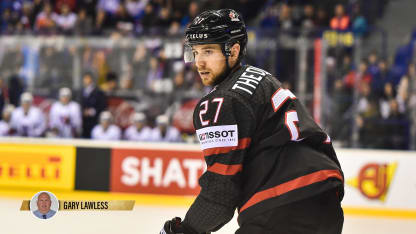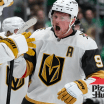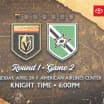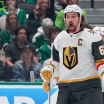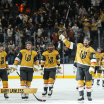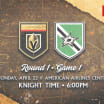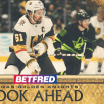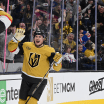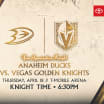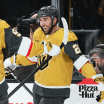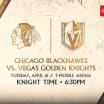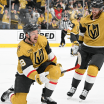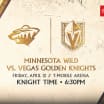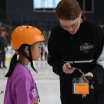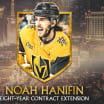The referees too often bear the burden of a rapid surge in technology which has given everyone but them an improved view on the game. Including the referees in these discussions and having them play a key role in the execution of any changes is also key. No one is better trained to interpret the rulebook than the referees - they should be integral in where officiating of the game is going next.
Winning Wolves: One of the hallmarks of George McPhee's time running the Washington Capitals was the success of his AHL affiliate club the Hershey Bears. McPhee's Bears went to four Calder Cups and won three during is tenure with Washington.
Year 2 of McPhee's affiliation with the AHL's Chicago Wolves has the club taking on in the San Diego Gulls in the Western Conference Finals which begins Friday.
Developing prospects in a winning atmosphere is the perfect hockey player lab. The AHL gives young players the opportunity to hone their skills and if the team is a winner and participating in playoff games it also provides a player with the chance to develop winning habits.
Playing in pressure situations, facing adversity and learning the keys to playoff hockey can translate from the Calder Cup to the Stanley Cup.
There's also growth from an organizational perspective. Players who go through both good and tough times in the minors develop strong bonds which carry through to the next level. They develop a brotherhood which helps when chasing success in the NHL.
Cody Glass currently ranks fourth in Calder Cup scoring among rookies while Nic Hague sits 10th and Zach Whitecloud is 11th. The longer they play, the better for them. And the Vegas Golden Knights.
Worlds apart: International play can also have a positive effect on a veteran pro. The opportunity to play with and against the best players in the world can help grow a game and confidence.
Vegas has four players at the worlds, Nikita Gusev with Russia; and Shea Theodore, Mark Stone and Jonathan Marchessault with Canada.
Playing a game which differs in some ways from the NHL format can grow a player's hockey IQ and knowledge. Different systems, styles and approaches all add to a player's intellect.
The opportunity to measure oneself against the best can also enhance a player's self-confidence.
Back in 2014, Blake Wheeler was starting to come into his own with the Winnipeg Jets and was named to Team USA for the Olympics. Wheeler was an extra and didn't get to play much during the tournament. But the opportunity to practice, live and compete with the best did wonders for his confidence. He figured out how good he really was and returned to the NHL as a dominant player and has been one of the best wingers in the game from that tournament on. Wheeler is just one example of a player using the international stage to further his growth as a player.
It will be interesting to see how Theodore and Marchessault, who haven't had any previous experience with Team Canada at the senior level, use this opportunity to improve.
